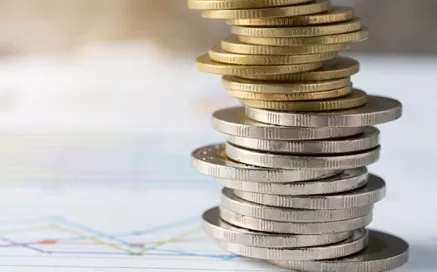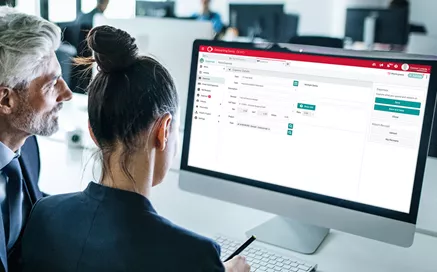
Claiming mileage allowances VAT
Do your employees drive for work? Do you reimburse them for fuel used?
If so, then you may be asking yourself if you have got your VAT treatment right when you pay people for the mileage they travel.
There are three ways to claim back mileage allowance VAT when you pay for fuel bought by your employees. We cover all three ways in this article.
 3 minutes
3 minutes
Written by Steve Thomas, Finance Software and Systems Specialist
Three ways to claim back VAT when you pay for fuel bought by your employees
Fuel bought for a works vehicle
If your employees use cars for business purposes and their job requires a lot of travelling, knowing how to reclaim VAT on mileage expenses is a must.
If your employees buy fuel for a vehicle that is only used for business purposes, and you can prove that it is not used at all for private purposes then you can claim back all of the VAT on any fuel that your employees pay for out of their own pocket.
A good example of this would be a works van that is left at the company premises overnight, with the employee departing for home in their own transport.
Fuel for a pool car would also fall into this category as long as it is a vehicle that is available for all employees and again is only used for business purposes.
In this case, you can simply reimburse the employee for the amount of fuel they have used and claim the VAT back in full but do make sure that they get a receipt.
Fuel bought for a vehicle that is also used for private purposes
We need to be certain that all of the use falls under business use. For example, if an employee takes a vehicle home at night and then travels to their normal place of work in it then this is classed as private use.
In this instance, different rules apply.
You are only allowed to claim back VAT on the proportion of fuel that was used for business purposes.
You could keep a detailed mileage log then work out the percentage of use that is private and deduct the requisite amount of VAT from your claim.
Alternatively, HMRC gives us things called ‘Fuel Scale Charges’ which allow you to claim all of the VAT back, but pay a separate amount for a scale charge. You can find out more on the HMRC website.
You’ll need to know the emissions figure for your car or for older vehicles the engine size as the scale charge changes dependent upon these figures.
The Fuel Scale Charge means that you don’t have to keep detailed mileage logs or carry out calculations at the end of the period.
Also, make sure that you periodically check the scale charge as the rates do change from time to time.
Fuel on mileage rates
Some businesses pay employees a set rate per mile for using their own car.
This can vary from business to business but if you use the HMRC approved fuel rates then you will be safe from any issues with VAT.
This method takes a little more working out but isn’t that complicated when you get used to it.
There are two steps involved in claiming back the VAT on mileage rates for private cars.
The HMRC rate for cars up to the first 10,000 miles per year is 45p per mile. This takes into account fuel, servicing, depreciation, insurance and any other costs of car ownership and use.
The first step is to work out the proportion of the mileage rate that relates to fuel.
Again we can use HMRC’s own figures for this as they publish advisory fuel rates which are an agreed amount for fuel per mile.
This is based on the type of fuel and engine size of the car.
The rates at the time of writing (March 2020) are:
Petrol
Engine size - petrol amount per mile - LPG per mile
1400cc or less - 12p - 8p
1401-2000cc - 14p - 10p
Over 2000cc - 20p - 14p
Diesel
Engine size - diesel per mile
1600cc or less - 9p
1601-2000cc - 11p
Over 2000cc - 13p
Note: hybrid cars are treated as either petrol or diesel for these purposes.
Now we have the fuel element then we have to work out the VAT amount that is included.
This is a simple matter of dividing by 6.
Here’s an example:
1700cc diesel car driven 300 miles.
The business pays the employee 300 x 45p = £135.
When they come to claim the VAT back the business takes the rate for the diesel car from the advisory fuel rates and multiplies it by the number of miles which gives the fuel used.
300 x 11p = £33
Then we take the total fuel element and divide it by 6 to get the amount of VAT suffered and thence the amount that can be claimed back.
£33/6 =£5.50
Fuel doesn’t have to be difficult
It's easy to get lost in a sea of information when there are so many resources available online. Fortunately, to steer us in the right direction, the HMRC published advisory explains how to calculate the business mileage rate, which varies depending on the type of vehicle and the number of business miles driven.
VAT on fuel for expenses tends to cause people to break out in a sweat but as we can see it can really be a fairly simple process.
By keeping accurate records and following the guidelines, you can reclaim the VAT on your business trips and reduce the cost of running your business.
All you need to do is to choose the method that suits you best, apply the rules logically and consistently and keep plenty of records.
That way if you do get a visit from the VAT man you’ll be perfectly prepared.
Looking for more advice on VAT on expenses?
We've got many articles and three in-depth guides for you to use when mastering VAT on expenses.
VAT on expenses guides
Handy guides for you to download and keep in your back pocket.

The ultimate guide to VAT on expenses
Master the basics of VAT on expenses and be confident in what you can claim for with this guide.

The 7 step guide to getting compliant
Ensuring you get, and stay, VAT compliant with Expenses can seem like a mammoth task. With our step by step guide, you can be confident you're not missing a thing.

The guide for what you could be missing
Whether you're a VAT veteran or a VAT virgin, VAT on expenses can still be a subject that gives accountants sleepless nights. This guide walks you through all of those commonly missed items in one download.








